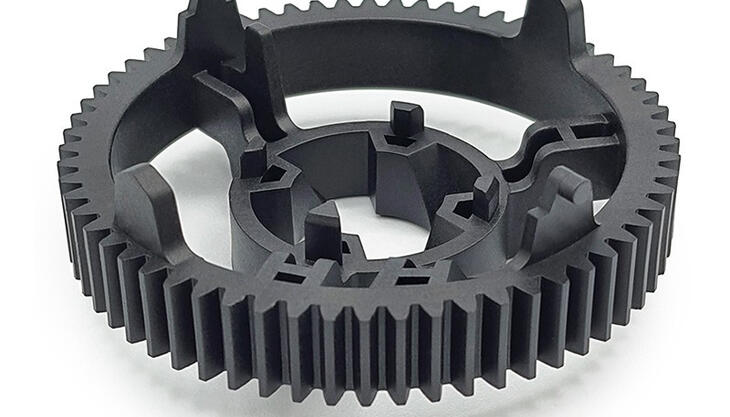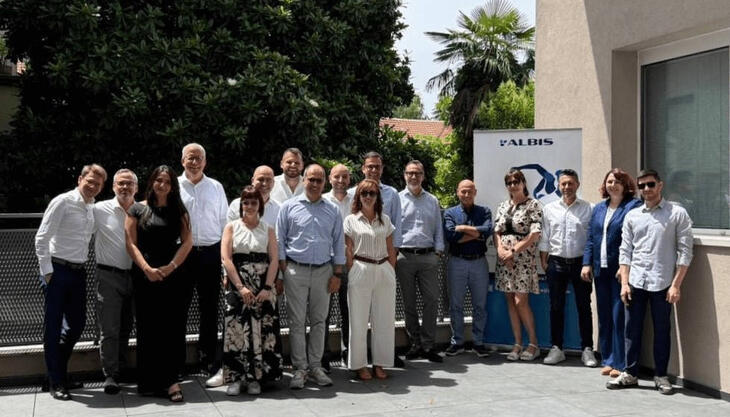Rear swing arm for e-bike made of reinforced polyamide

Two Bergamo-based manufacturers, RadiciGroup and Acerbis, have launched an innovative project, an absolute first in the e-bike market, arising from their desire to create high performance design solutions: specifically, a rear swing arm for electric bikes, for the first time made of polyamide rather than aluminium, allowing the rear triangle to better absorb the stress from uneven terrain. The first company to use this innovative part, the result of painstaking research and development work, is Fantic, an Italian manufacturer specializing in the production of motorbikes and electric bikes. Fantic decided to mount the new rear swing arm on several models of its Trail and Enduro lines that were previewed at Eicma 2022 and are now already in production and available for purchase.
“Since we are dealing with a structural component of the bike frame,” said Claudio Ghilardi, CAE analyst of RadiciGroup High Performance Polymers Marketing and Technical Service, “we have chosen a polyamide 66-based specialty material reinforced with glass fibre, precisely to ensure that the part can hold up under the continuous high stress it is subjected to. An additional plus is that the mechanical properties of the selected material, such as stiffness and strength, are less affected by moisture absorption. At the same time, great attention has also been paid to aesthetics in formulating the material, so much so that it guarantees excellent surface appearance, is UV-stabilized and withstands weathering over time”.
Using the RadiciGroup compound enables a 10% weight reduction in the part and eliminates the painting process currently used for the corresponding metal component, thus improving environmental performance, as well. RadiciGroup engineering polymers are solution-dyed, that is, they are coloured during the extrusion process. This means that the part is already ready to use at the end of the injection moulding phase with an excellent surface finish. Indeed, among the main requirements for the material were excellent surface appearance and the ability to produce complex geometries, in line with the design and style of Fantic products.

Achieving this result was made possible by close collaboration among RadiciGroup, Acerbisand Fantic through all stages of the project, from the design of the part to the formulation of the material, the creation of the mould and the injection moulding process, down to the testing of the component mounted on an e-bike. This fast, all Italian supply chain delivered a product that was able to pass the stringent tests carried out at the customer's laboratories by a ten-fold margin over the initial requirements.
“For us, this partnership among Italian companies,” Guido Acerbis, CEO of Acerbis, emphasized, “represents a step towards a new way of thinking about production shared with our partners, which will allow us to accelerate some production reshoring to Europe. The project gave us the opportunity to replace a metal part with a nylon one by re-engineering it and improving its function. Furthermore, by simplifying and shortening production time, we increased the volume of products brought to market in a short time”.
For this project, RadiciGroup deployed its “Engineering Service”, which uses numerical computer simulation (CAE) to predict the behaviour of materials during the moulding process and the mechanical response of parts already in the very early stages of development, so as to make it possible to optimize their geometry and technical performance. This tool also draws on the skills and experience of RadiciGroup specialists to contribute to the success of innovative projects, including metal replacement projects. The advantages of implementing metal replacement include fewer processing steps, less energy-intensive production processes, lighter weight products and lower transport costs, all of which lead to a reduction in overall CO2 equivalent emissions.
Hence, the new innovative rear swing arm contributes to lowering the environmental impact of an e-bike and can be recovered and mechanically recycled at the end of its useful life. In fact, this bike part was the result of applying eco-design principles to fuel a virtuous system of polyamide recycling towards the realization of a circular economy.
















